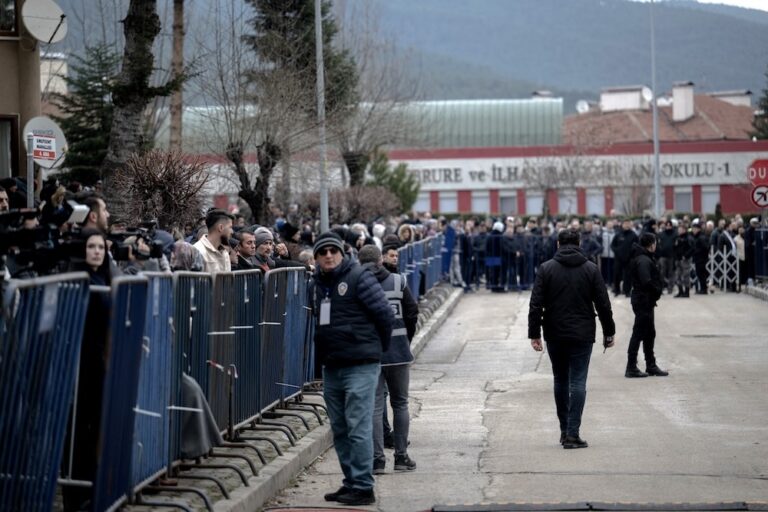The agencies are the main source of news for newspapers and television channels and their statement has created concerns over whether the news is going to be "controlled right from the start".
(BIANET/IFEX) – Five news agencies announced in a joint statement that their news were going to “take into account the public order” and that they were going to “comply with publication bans of the competent authorities”. The statement came right after the Prime Minister’s media meeting.
After the Prime Minister Recep Tayyip Erdogan held a meeting with owners and executives of media organizations on 21 October 2011, the Anadolu Agency (AA), the Turkish News Agency (AHT), the Ankara News Agency (ANKA), the Cihan News Agency (CIHAN) and the Ihlas News Agency (IHA) announced in a joint statement that they were going to “comply with the publication bans of the competent authorities”.
The agencies are the source of news for newspapers and television channels. Their statement gives rise to concerns over whether the news is going to be “controlled right from the start”.
The declaration on how to report on issues of “terrorism and violence incidents” remained vague. It was said that for this sort of news “the public order will be taken into account”, “a distance will be kept to approaches that give rise to fear, chaos, hostility, panic and intimidation”, “publication bans of the competent authorities will be complied with”, “no publication shall include propaganda for an illegal organization” and “news and visuals will reach the subscriber by considering the social benefit and solidarity”.
On the AA website it was announced that “joint publication principles regarding terrorism incidents were defined”. No information was given on the aim and the time frame of the declaration.
There have been recent discussions of how many soldiers actually died in the attacks of the militant Kurdistan Workers’ Party (PKK) in Cukurca and Yuksekova (Hakkari) on 19 October. The Turkish Armed Forces (TSK) announced 24 casualties whereas the PKK claimed 81 soldiers had died. The new media declaration came after news agencies had published these contradicting numbers. Critics asked if “another obstacle before obtaining correct information” was going to come.
Several journalists criticized Prime Minister Erdogan’s closed meeting with owners and general publication directors of media organizations. Critics said that the non-disclosure of the topics discussed at the meeting was one way to establish pressure that might lead to censorship. Hence, the people’s right to information had been restricted, the critics emphasized. “The talks of some newspaper executives expressing themselves as if they were waiting for a directive,” was a focal point of criticism.
Yasemin Congar from Taraf newspaper attended the meeting. In her article entitled “National Journalism and my ‘non-national’ feelings” she wrote, “Prime Minister Erdogan thanked us for our ‘full participation'”.
Congar continued, “Did any new, constructive, creative idea emerge from the discussion on what the media can do to stop the bloodshed and use a language of peace in the name of peace? No.”
(. . .)


